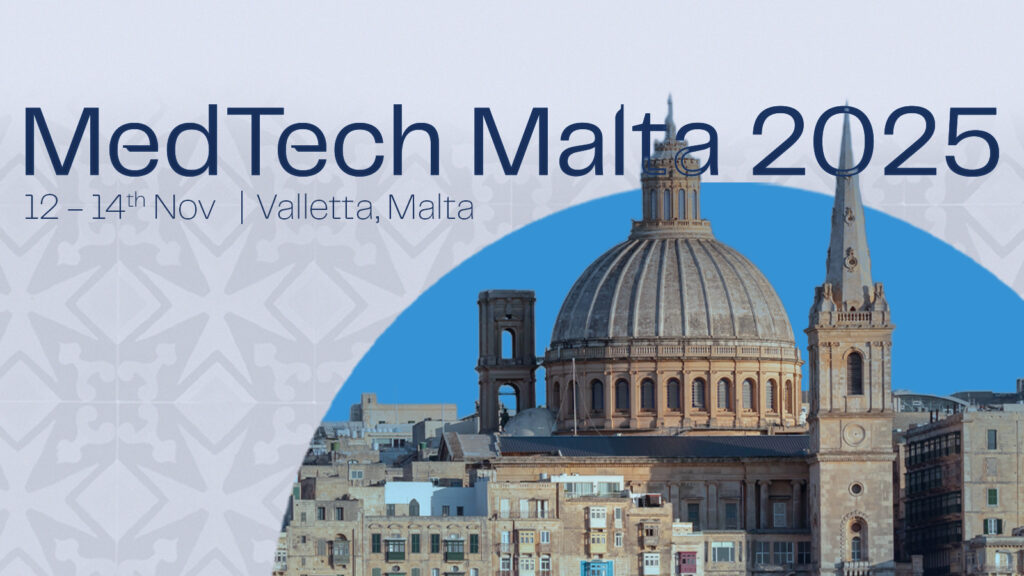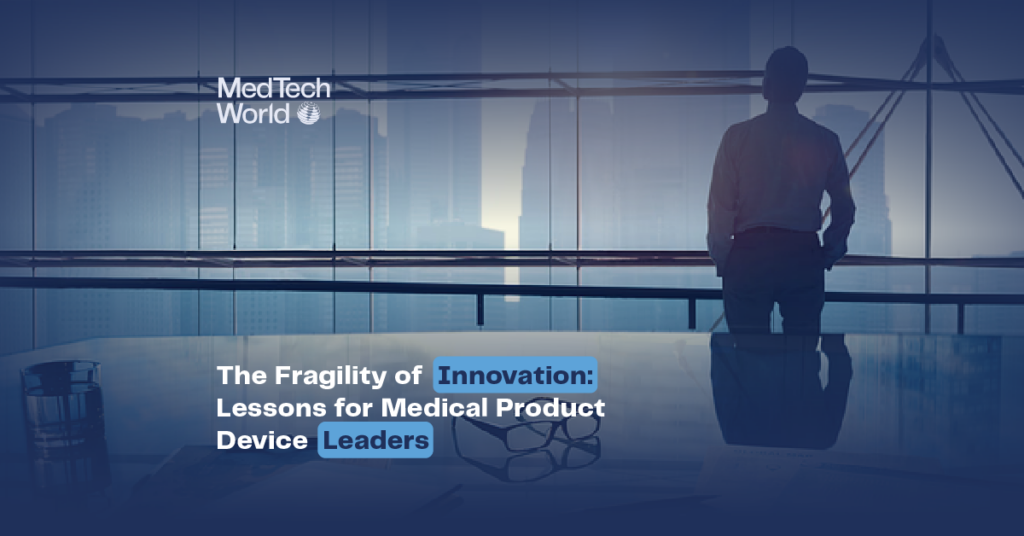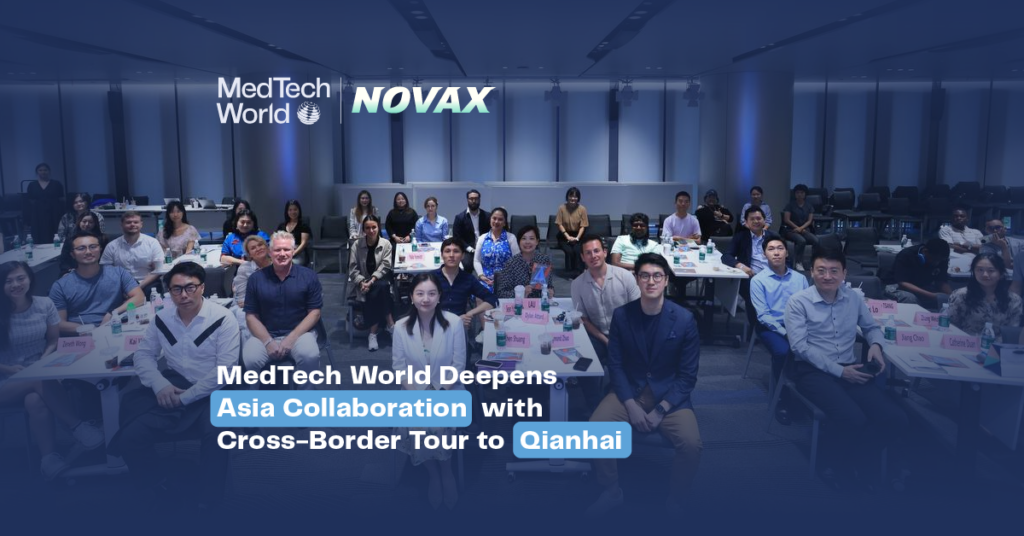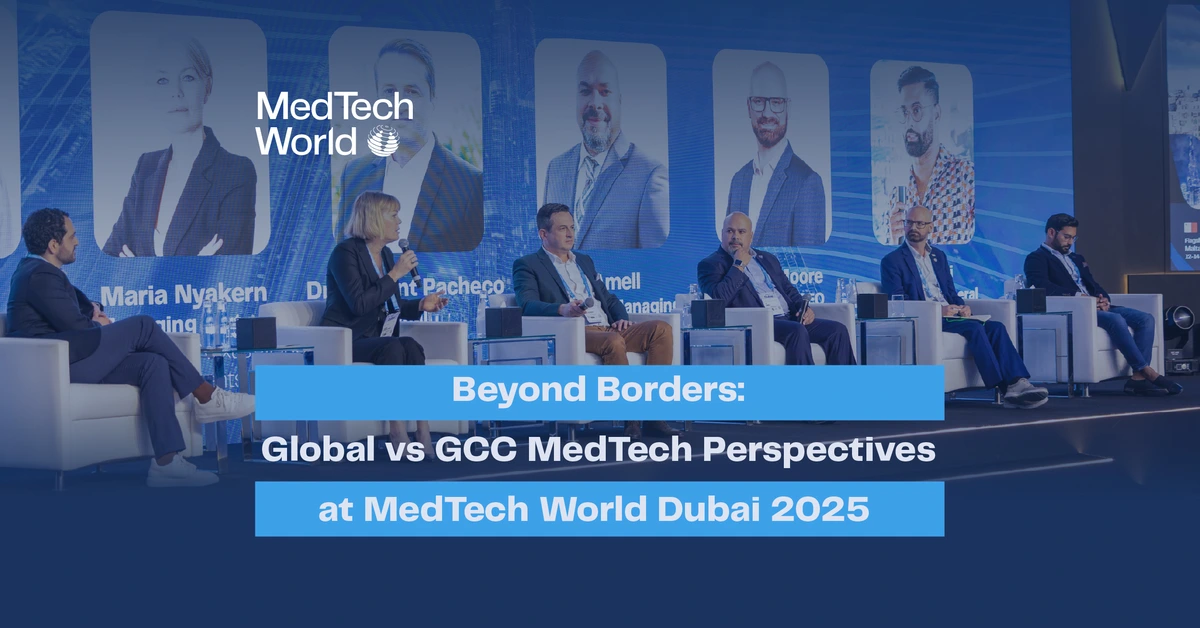
Beyond Borders: Global vs GCC MedTech Perspectives at MedTech World Dubai 2025
As the MedTech industry continues to expand across regions, the conversation around global versus GCC MedTech perspectives has never been more relevant. At MedTech World Dubai 2025, industry leaders gathered for an insightful panel discussion titled ‘Beyond Borders: Global vs GCC MedTech Perspectives’. Moderated by Malek Nasr, Co-Founder of HighLife, the panel featured Maria Nyakern, Managing Partner at Nyakern Nexus Investments; Dr. Laurent Pacheco, Chair of the London Venture Capital Network; JJ Amell, Founder & Managing Attorney at Amell Law Firm, PLLC; Steve Moore, Founder and CEO of Welcome Health Ventures; and Sahir Ali, Founder and General Partner of MODI Ventures.
The discussion covered key themes such as artificial intelligence (AI) in MedTech, the importance of localized AI systems, revenue model structures, international expansion strategies, and investment considerations.
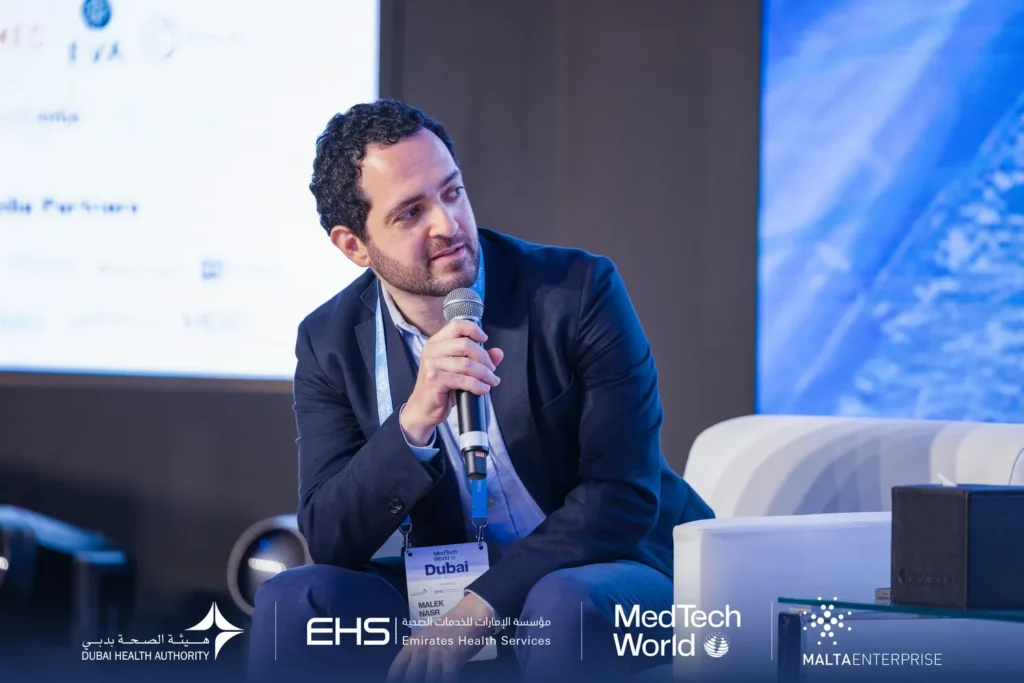
The Role of AI in MedTech and GCC’s Positioning
Malek Nasr opened the panel by addressing the role of AI in MedTech and its increasing influence on innovation. Turning to Maria Nyakern, he asked how AI can be applied to the industry and how the GCC can position itself as a leader on the international stage.
Maria emphasized the critical need to address data biases in AI-driven MedTech solutions, pointing out that much of the existing clinical research is based on data from predominantly white, male subjects in Western countries.
“For decades, we have known that the clinical research and the data that we have generated across the globe is basically EU and US centric,” Maria stated. “It’s focused on a white male that’s 65 years old, and that data is supposed to represent the global population, which we know is not accurate, and in fact, can be quite dangerous.”
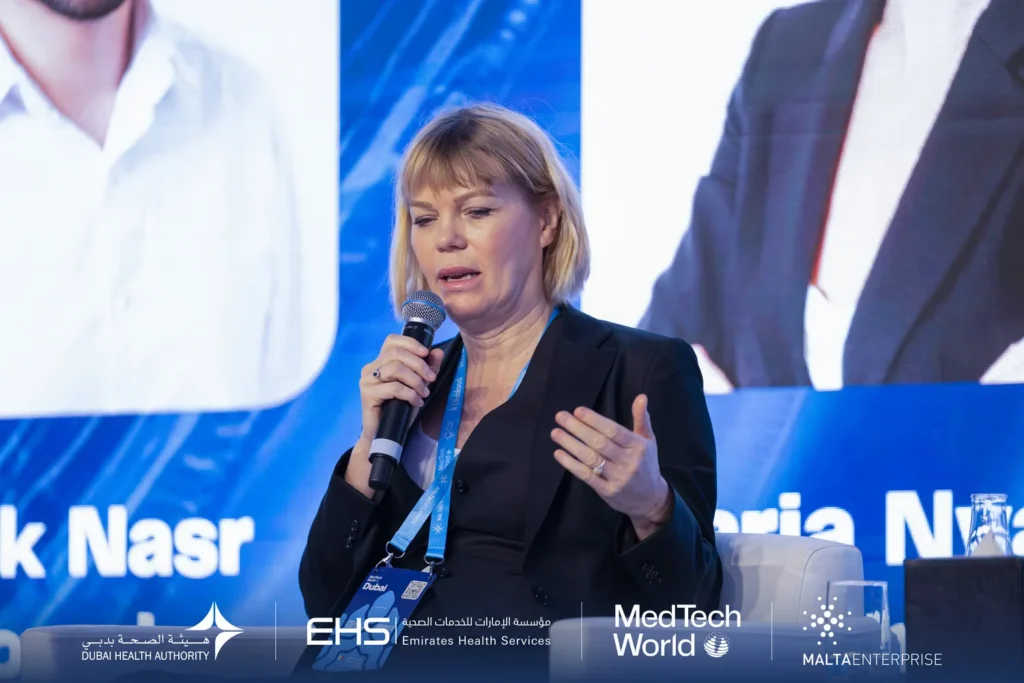
Maria underscored the importance of understanding different AI system models:
- The US approach: Market-first, innovation-driven.
- The Chinese approach: State-controlled.
- The EU approach: Regulation and patient-centric, privacy-driven.
She argued that no single AI system can be universally adopted, as AI development is influenced by cultural, political, and philosophical biases. “The GCC region has a unique opportunity to develop AI systems that don’t necessarily prioritize individual autonomy, but rather collective responsibility,” she added.
Structuring Revenue Models for MedTech Success
Shifting the conversation toward the financial viability of MedTech companies, Malek asked Dr. Laurent Pacheco how emerging companies should structure their revenue models when entering new markets.
Dr. Pacheco noted that early-stage companies often focus more on science, technology, and regulatory compliance than revenue generation, which can pose challenges when attracting investors.
“When we investors discuss and assess investment opportunities, we oftentimes ask about the revenue model and we find this question is not very deeply explored yet,” he explained. “If we don’t see who is going to be the payer for this MedTech solution, it raises questions about market viability.”
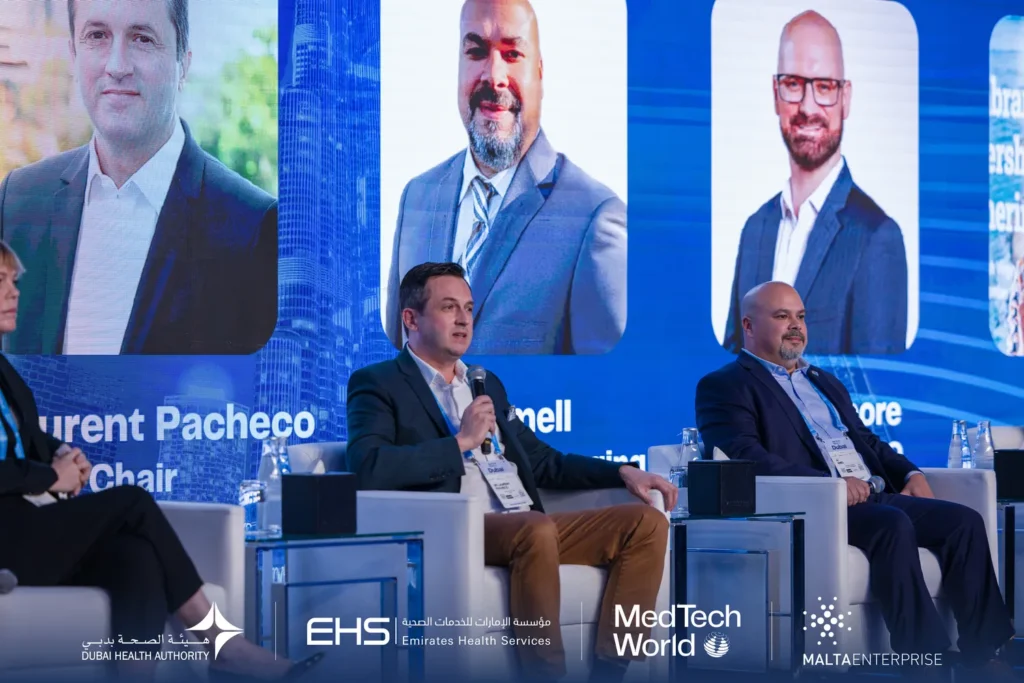
Dr. Pacheco outlined various potential payers for MedTech solutions, including patients, physicians, hospitals, and public healthcare systems. He also highlighted the growing importance of digital therapeutics, where regulators may approve reimbursement models, thereby expanding market opportunities.
“In our world, a patient can pay for their apps, a physician for their practice, or a hospital group may allocate budgets for technology that improves operations,” he said. “To justify public coverage, companies must develop clinical trial-like evidence showing improved patient outcomes and cost savings.”
Navigating the U.S. Market: Regulatory and Immigration Considerations
The conversation then turned to the U.S. market, with Malek inviting JJ Amell to share his insights on the challenges MedTech companies face when entering the U.S.
“In my conversations with innovators and CEOs in this industry, I noticed that there was a gap,” JJ remarked. “People are very concerned about FDA compliance, business plans, and intellectual property such as patents. But I think what needs to also be considered is U.S. immigration.”
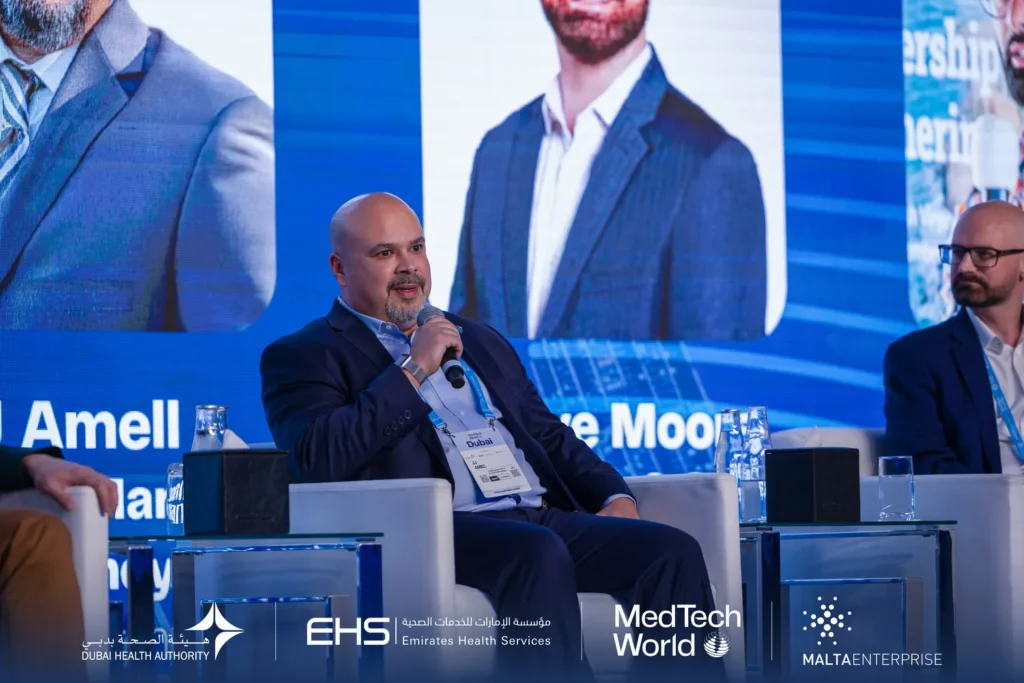
JJ highlighted that many MedTech entrepreneurs overlook the complexities of obtaining visas, work permits, and navigating the bureaucratic process with agencies such as the U.S. Citizenship and Immigration Services (USCIS).
“US immigration, working with USCIS, the State Department, and various other departments can be an elongated process,” he explained. “So when you’re starting to analyze the U.S. market, you need to factor in immigration planning as a key component of your strategy.”
The Future of MedTech: A Global Yet Localized Approach
Wrapping up the discussion, Malek turned to Steve Moore for his perspective on how MedTech companies can navigate regulatory and economic differences across regions.
Steve highlighted the importance of firsthand experience in understanding the GCC market.
“What your brains tell you about the GCC is based on what you’ve read, what you’ve watched. We absorb it a lot. And until you spend time here in the region, you really don’t understand it. And you need to spend time here,” he explained.
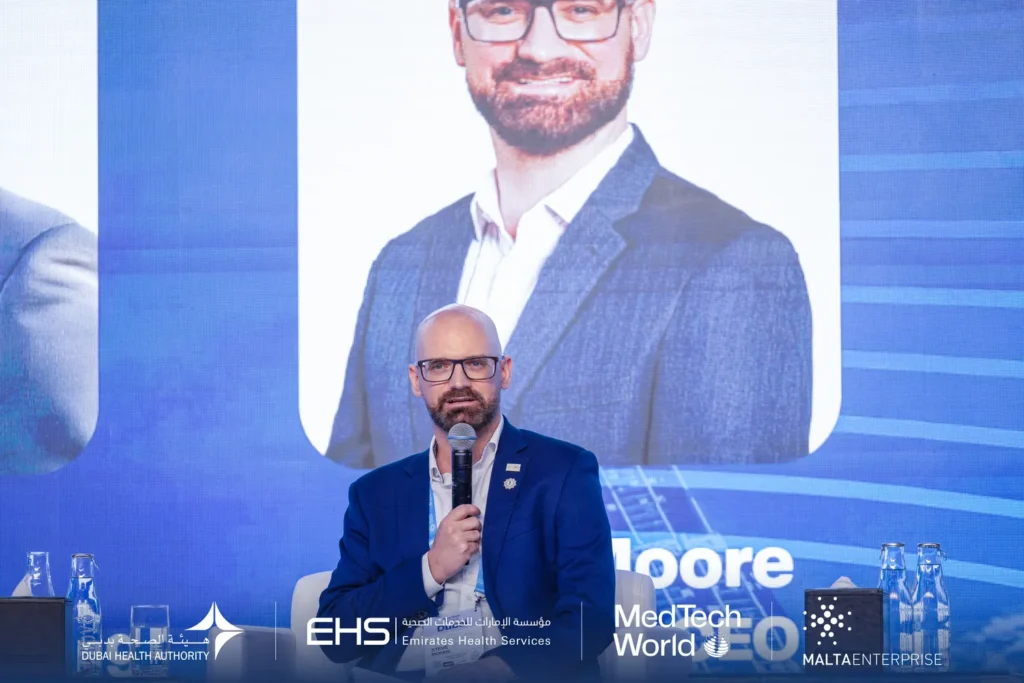
He also pointed out that while the GCC consists of several countries, a key challenge—and opportunity—is harmonizing market entry points.
“For me, the GCC is an exciting place. It only has about 60 million citizens, but if you see it as a launch pad—where you’re launching to broader MENA, the potential is immense. The real market size isn’t just the GCC; it’s the 570 million people across MENA. Bring the tech here, prove it, scale it, and improve human lives and well-being.”
On the investment front, Malek invited Sahir Ali to outline what investors look for in MedTech companies.
Sahir emphasized that AI has the potential to revolutionize how diseases are diagnosed and treated by consolidating vast amounts of data.
“Perhaps the biggest opportunity for AI is what I call the ‘interpreter of disease.’ AI can collapse all this multimodal information—radiology scans, pathology slides, genomics data—and allow clinicians to risk-profile patients in ways we never could before,” he said.
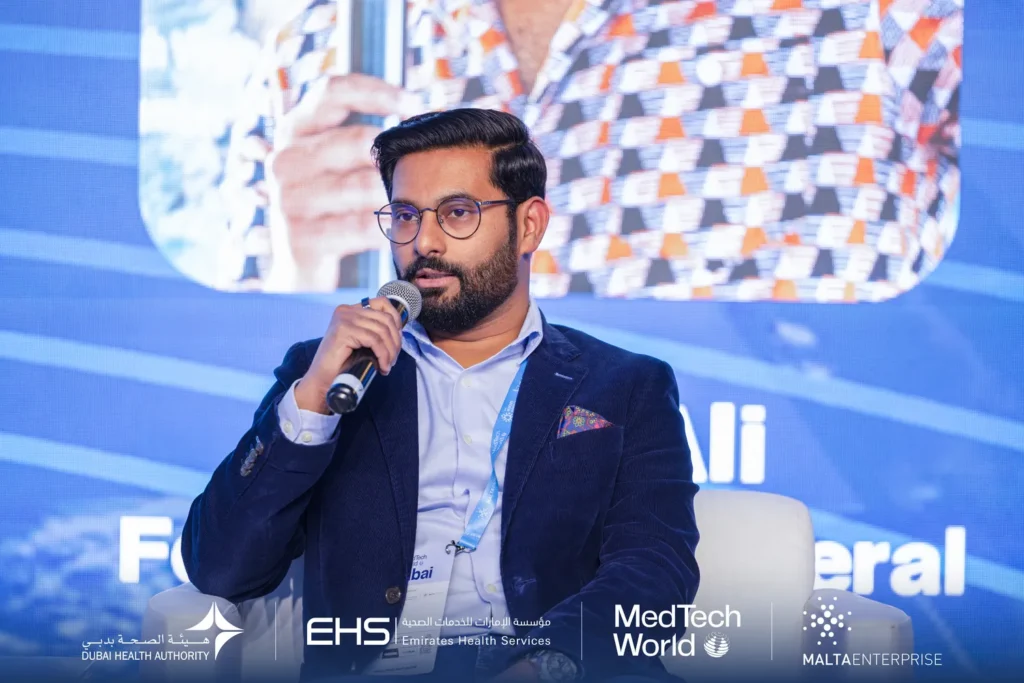
He also underscored the need for MedTech companies to move beyond traditional disease management.
“If you just look at aggressive diseases like prostate or breast cancer, right now it’s a trial-and-error approach. But by integrating AI, genomics, and spatial biology, we can start to identify target biomarker fits. And that’s where we go beyond managing diseases—we start to find real cures. This is where CRISPR, gene editing, and cellular reprogramming come into play.”
As the panel concluded, the consensus was clear: while global expansion is a goal, localized strategies are crucial for success. The GCC market, with its rapid adoption of AI and healthcare investments, has the potential to serve as a critical proving ground for MedTech innovation.
Watch the complete panel discussion here:
Join Us at MedTech Malta 2025
As the global MedTech conversation continues, we invite you to be part of the next chapter at MedTech Malta 2025, taking place in Valletta, Malta, from 12 to 14 November 2025. The event will bring together industry leaders, investors, and innovators to explore the latest advancements in healthcare technology and foster meaningful collaborations. If you’re looking to expand your network, showcase your innovations, or explore partnership opportunities, reach out to us at [email protected].
